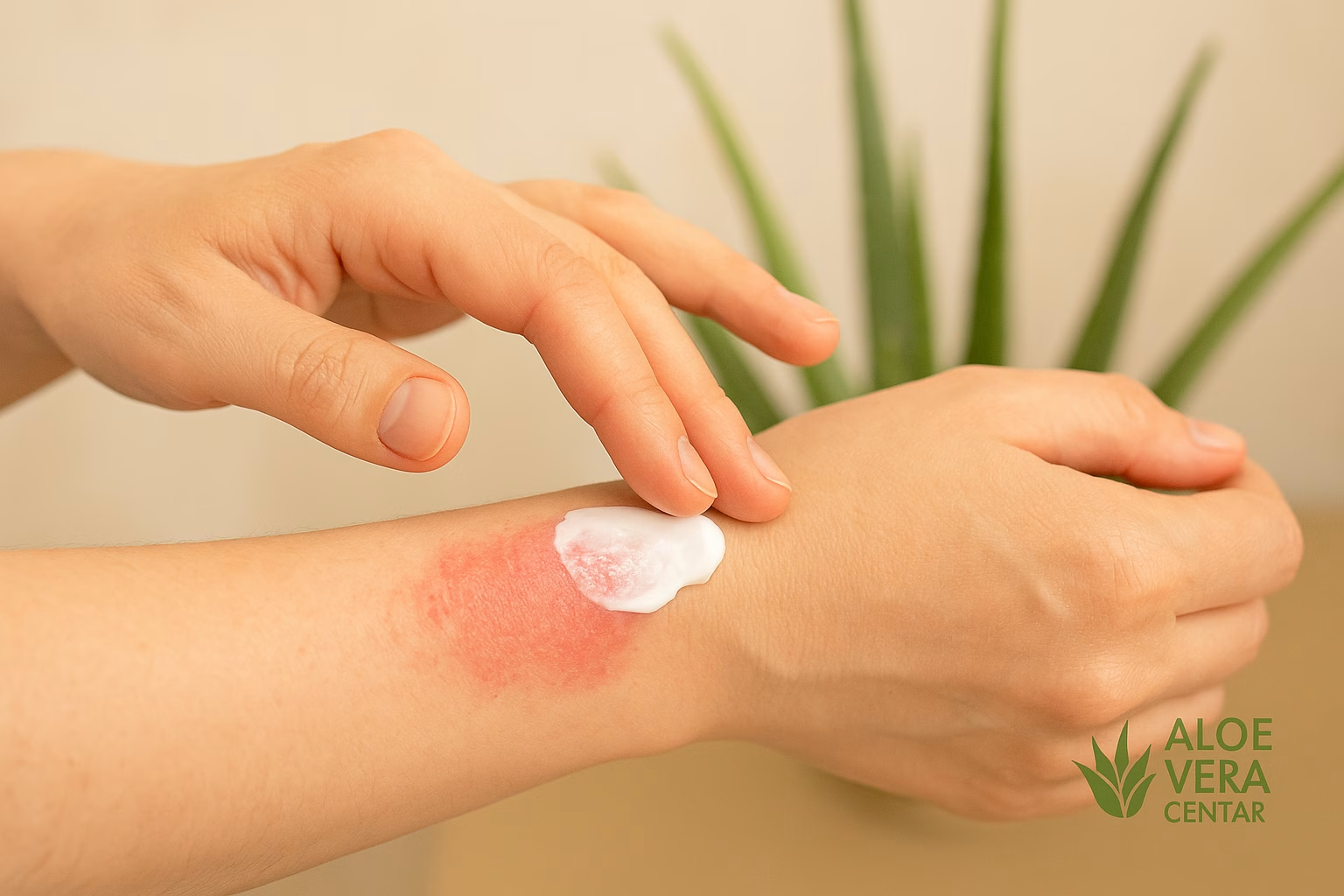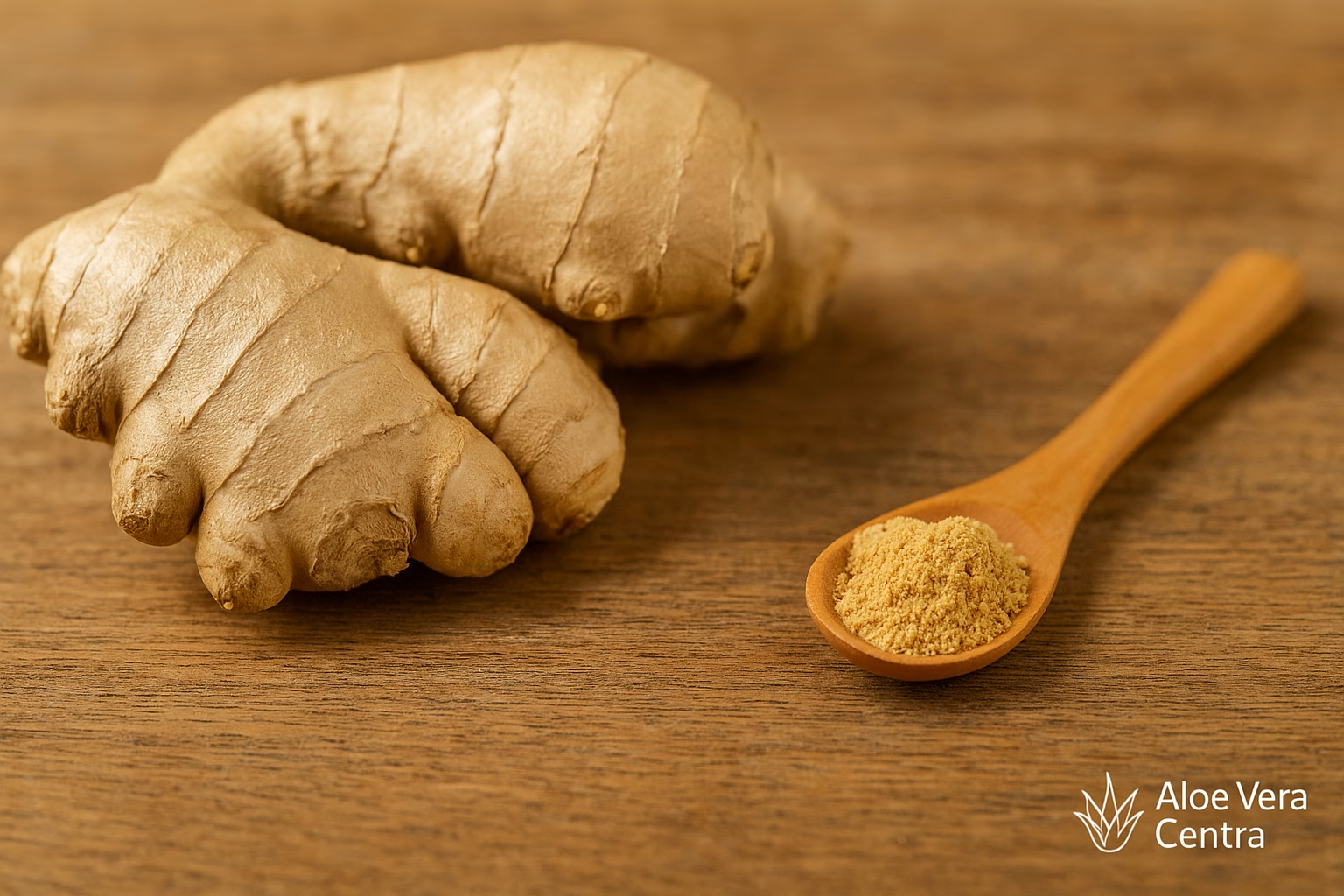
Red clover – natural support for women’s hormonal balance
Red clover is becoming increasingly popular as a natural support for women’s health, especially when it comes to hormonal balance. Many women face challenges such as irregular menstrual cycles, polycystic ovary syndrome, menopausal symptoms, or premenstrual syndrome (PMS). In such situations, red clover can offer additional support thanks to its phytoestrogens, which mimic the effects of female hormones. In the following paragraphs, you will learn exactly what red clover is, how it affects the female body, what are the possible benefits and risks, and how best to include it in your daily routine or combine it with other natural supplements. We will also examine what the science says about the effectiveness of red clover, provide practical examples, and explain whether the stories about its “miraculous” properties are just hype or have some basis in fact. If you were looking for verified information and practical tips for balancing hormones naturally, keep reading!
What is red clover and what makes it special?
Red clover ( Trifolium pratense ) is a plant from the legume family, whose flowers are most often used for medicinal purposes. Although it grows throughout Europe, many consider it a “weed” due to its wide distribution. However, these flowers are rich in isoflavones, which are phytoestrogens – plant-derived compounds that resemble the female hormone estrogen.
Due to the presence of phytoestrogens, red clover has been used in folk medicine for centuries to support the female reproductive system. It has been traditionally used to alleviate the symptoms associated with menopause, as well as for general strengthening of the body. Today, research links it to possible help with non-specific hormonal imbalances, bone health, and the cardiovascular system, especially in older women.
Of course, any herb that contains active compounds can have a powerful effect on the body, so it’s good to be aware of potential side effects or interactions with medications. Therefore, it’s important to get informed and, if necessary, consult a doctor before regular use.
How does it affect the female body?
The main advantage of red clover lies in its isoflavones, especially genistein, daidzein and formononetin. These compounds are similar in structure to estrogen, which means they can bind to estrogen receptors in our bodies – especially in breast, uterine and bone tissues. Depending on our own estrogen levels, phytoestrogens can act as mild agonists (enhancers) or antagonists of estrogen, which gives them an interesting dual role: when estrogen levels are low, they can provide a “mild” estrogenic effect, and when they are high, they can partially block it.
Because of this mechanism of action, red clover is often associated with alleviating menopausal symptoms (hot flashes, night sweats, insomnia, mood swings). In women of reproductive age, red clover may help balance the cycle if it is disrupted due to low estrogen levels, although it is always advisable to check your hormonal status and seek professional advice before taking it.
Impact on bone and cardiovascular health
Some authors suggest that isoflavones may have a positive effect on bone health, which is important for women in menopause and postmenopause, when the risk of osteoporosis increases. Phytoestrogens may contribute to the preservation of bone density, although this is not a substitute for calcium, vitamin D and a balanced diet. There is also a theory that red clover, thanks to its antioxidant properties, may contribute to better cardiovascular status because it potentially improves the level of “good” HDL cholesterol and reduces inflammatory processes in the body.
Use for PMS and irregular cycles
For women who suffer from severe premenstrual syndrome (PMS), phytoestrogens from red clover may help reduce tension, painful cramps, and mood swings. However, the effect can vary: while it helps some, it may not bring significant relief to others. Much depends on the individual’s hormonal profile, overall lifestyle, and other factors (stress, diet, body weight, etc.).
What the science says: a review of the research
A number of studies have examined the effects of red clover on menopausal symptoms. According to Healthline, several studies have shown that red clover extract can reduce hot flashes and night sweats during menopause, and may improve bone health to some extent. One study published on PubMed suggests the potential positive effects of red clover isoflavones on cardiovascular health, but it highlights the need for further research to more precisely determine dosage and long-term effects.
However, research reviews often emphasize that results may vary depending on the type of preparation (tea, extract, capsules with standardized isoflavone concentration), duration of use, and individual differences in the user. Although most women tolerate red clover well, the emphasis is on a personalized approach: what relieves symptoms for one woman may be less effective for another.
Possible benefits and application tips
When it comes to the use of red clover, three forms are most commonly used in practice: tea , tincture , and capsules with concentrated isoflavone extract. Dosage depends on the specific product, but generally, the following is recommended:
- Tea: Pour 1-2 teaspoons of dried red clover flowers with hot water and let steep for 5-10 minutes. Drink up to 2 cups a day.
- Tincture: Dosage usually ranges from 20 to 40 drops, 2-3 times daily, depending on the concentration.
- Capsules (extract): Follow the manufacturer’s instructions, usually 40-80 mg of isoflavones per day is recommended.
In menopausal women, red clover is often taken continuously for several months to see its potential impact on hormones and symptoms. In cases of irregular cycles or PMS, some experts suggest taking red clover only in the second phase of the cycle (after ovulation), when estrogen levels fall.
Combination with other supplements and plants
Many women use red clover in combination with other herbal supplements for even better results. For example, combining it with ashwagandha or maca powder can provide additional support for hormonal fluctuations and stress. Forever Multi-Maca from the Forever Living range is a common choice for those who want a holistic approach to balancing energy, libido and hormone levels.
It is also recommended to introduce quality sources of omega-3 fatty acids, such as Forever Arctic Sea , which can contribute to cardiovascular health and reduce inflammation. If you are considering integrating aloe vera into your routine, aloe vera gel is known for supporting digestion and hydration, which can also be beneficial during phases of hormonal changes.
Balanced diet and lifestyle
Regardless of whether you use red clover or not, the following always applies to maintaining women’s health and hormonal balance:
- Proper nutrition: Focus on whole foods, plenty of fruits, vegetables, and legumes, and reduce your intake of refined sugars and saturated fats.
- Regular exercise: Exercise helps maintain a healthy weight and reduce stress, which is key to hormonal stability.
- Stress management: High levels of cortisol (the stress hormone) negatively affect women’s hormones. Reducing stress through relaxation techniques and meditation can help.
- Get enough sleep: Insomnia or poor sleep can exacerbate PMS and menopause symptoms.
Red clover will certainly not replace the deficiency of these essential factors. Instead, view it as additional support in an already existing, comprehensive body care plan.
Can side effects or interactions occur?
Most women tolerate red clover well, especially when used at recommended doses. However, mild side effects such as headache, nausea, or indigestion are possible, especially when starting to take it. Also, because phytoestrogens can affect hormone levels, it is important to be careful:
- For hormone-dependent tumors: Women with estrogen-responsive breast, uterine, or ovarian tumors should consult a doctor before using red clover.
- Pregnancy and breastfeeding: Not recommended without prior consultation, as the safe dose and effect in these conditions have not been sufficiently tested.
- Drug interactions: Red clover may affect the effects of birth control pills, hormone therapy, anticoagulants (blood thinners), and other medications that are metabolized in the liver.
If you are already taking hormone therapy for menopause or contraception, be sure to ask your doctor whether combining it with red clover could affect the effectiveness of your medications. Safety should always come first, especially when it comes to the hormonal system, which is very sensitive.
Red clover through the stages of a woman’s life
As a woman’s body changes throughout life, so do her needs. Here’s a quick overview of how red clover can help at different stages:
Reproductive age
At this age, many women struggle with irregular cycles, PMS, painful periods, or hormonal imbalances. Red clover can provide a mild estrogenic effect, but it is important not to overdo it – if estrogen is already high and progesterone is low, there is a risk of further disrupting the balance. In these situations, regular hormone checks (e.g. at the beginning and middle of the cycle) are recommended to know if introducing phytoestrogens is a good step.
Perimenopause and menopause
This is the most common time when women begin to explore natural ways to relieve symptoms like hot flashes, mood swings, and vaginal dryness. Red clover may help reduce these symptoms, although individual results vary. When combined with other adaptogenic herbs or supplements like Forever Arctic Sea (for omega-3 fatty acids) or Forever Multi-Maca (for energy and libido support), many women report an overall improvement in their quality of life.
Postmenopause
In postmenopause, estrogen levels are even lower, which further accelerates changes in the bones and cardiovascular system. Isoflavones from red clover may provide some bone protection, and (according to some studies) help maintain healthy cholesterol levels. However, even at this stage, we should not forget the importance of calcium, vitamin D, a varied diet, and regular physical activity for maintaining health.
Examples from practice and user experiences
Many women have shared their stories about red clover on forums and social media. Some note that they took red clover tea during the early stages of menopause and noticed a decrease in the frequency of hot flashes. Others preferred capsules with a standardized isoflavone extract, noting an improvement in mood.
However, it is important to emphasize that there are also women who have not experienced significant changes. The hormonal system is complex, and the effect of a single herb often depends on lifestyle, diet, genetics and other factors. Therefore, the best approach is to take a “try and see” approach, while monitoring your body and following professional recommendations.
How do you know if red clover will benefit you?
There is no universal answer to this question, but if you have noticed symptoms related to low estrogen levels (hot flashes, frequent sweating, vaginal dryness, thinning hair, etc.), red clover may be one of the natural solutions. However, if your problems are related to excess estrogen (e.g. endometriosis), you should be cautious about taking phytoestrogens and consult a gynecologist or endocrinologist.
FAQ – Frequently asked questions about red clover
1. Is red clover a “natural hormone therapy”?
No. Although it contains compounds that act similar to estrogen, red clover is not a substitute for hormone replacement therapy (HRT). Every woman is unique and has specific needs, so you should always consult your doctor before making any decisions about hormone treatment.
2. Can men use red clover?
Yes, but much less commonly. Because red clover can have mild estrogenic effects, men generally do not use it for their health problems. However, it is sometimes recommended as an aid in lowering cholesterol levels or for general anti-inflammatory effects, but these are rare cases.
3. How long do I need to take red clover to see results?
It varies from person to person. Some people notice positive changes after a few weeks, while others may take up to two or three months. As with most herbal supplements, it’s important to be patient and monitor your body’s reactions.
4. Can I combine red clover with Forever Multi-Maca?
Yes, many women choose this combination to get a wider range of herbal compounds that have a beneficial effect on libido, energy, and hormonal balance. However, if you are already taking medication or have more complex health conditions, consult your doctor.
Conclusion: does it have a place in your routine?
Red clover can be a valuable ally for women seeking natural support for hormonal balance . It is most commonly used to reduce the unpleasant symptoms of menopause, but younger women with PMS or irregular cycles may also benefit. It is important to have realistic expectations and not treat red clover as a magic bullet. Along with a proper diet, regular exercise, good sleep, and other healthy habits, it can be an effective supplement.
If you’re thinking about integrating natural supplements into your plan for better hormonal balance, be sure to check out Forever Multi-Maca and various other products in the official Forever store , where you can get 15% off select items. Choose products that suit your specific needs and see how the synergy of herbal ingredients can bring real results.
**This content is not a substitute for professional medical advice. If you have any concerns or health concerns, please consult a doctor or other qualified professional.**








